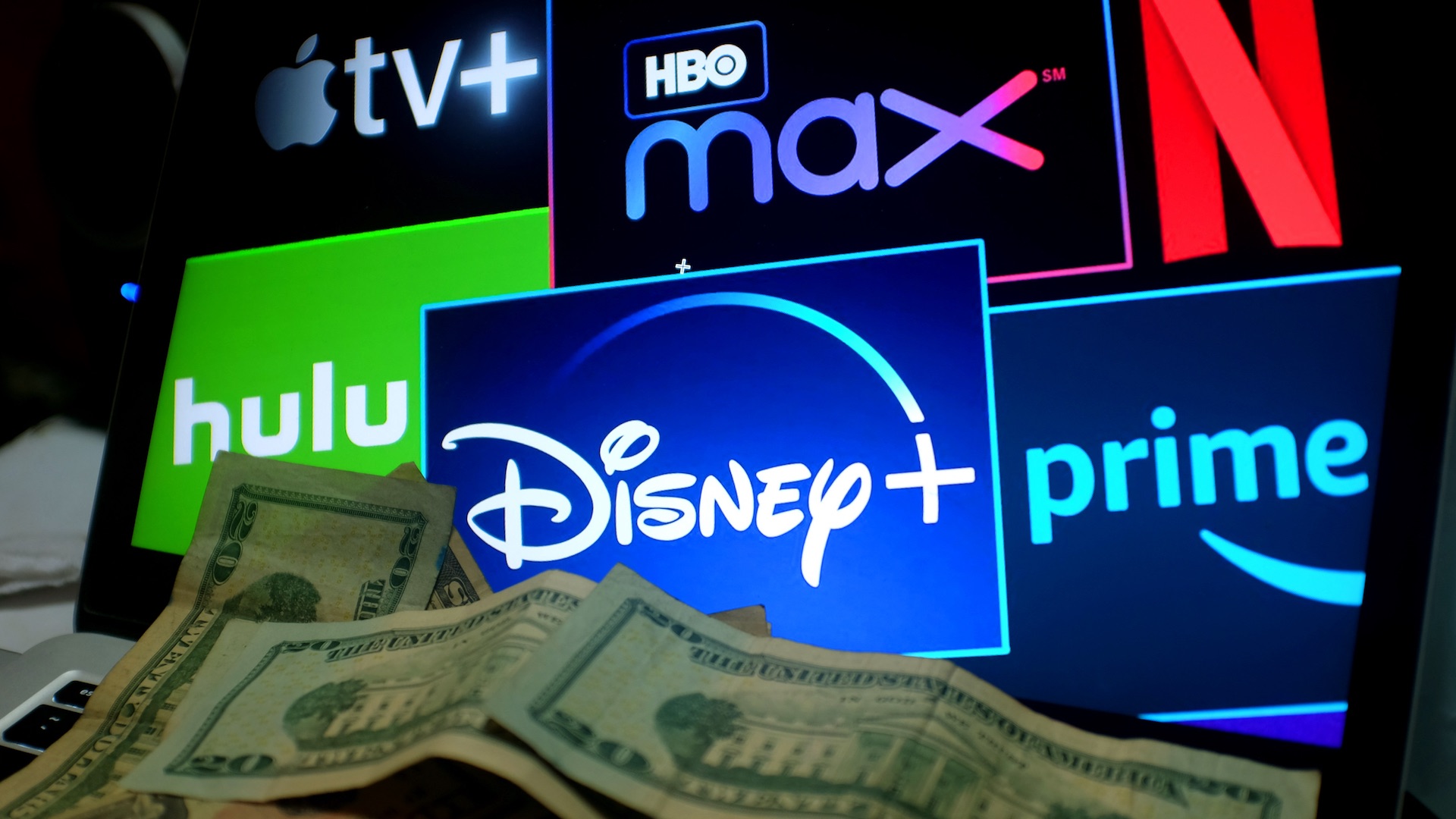
It is now two years since Disney+ launched with a Baby Yoda fanfare. With Apple TV also two years old, where are we with the streaming wars and can anyone catch Netflix?
On November 12, 2019, just over two years ago, the House of Mouse joined the growing number of major streaming services overnight by launching Disney+ with an enormous back catalogue of titles stretching back to 1928 that it announced in a now infamous 300-long tweetstream. Crucially it also debuted with 10 original titles too, and one of them was The Mandalorian, the first live action television entry in the Star Wars cannon and one of the biggest streaming success to date.
As a result, Disney+ went from a standing start to pretty much everywhere overnight. It took Netflix two years to grow to 10 million subscribers. Disney+ did it in an astonishing 24 hours.
So, where do the streaming services stand now, two years after launch? Who are the winners and who are the losers? Let’s fast-forward to the present and see where we stand.
By the numbers
In short, it’s a mixed bag. In the two years since the launch of Disney+, what were often referred to as the Big Two, Netflix and Amazon, have gone on to become a Big Three. Disney’s long play of acquiring popular media bands such as Marvel and Star Wars over recent years has paid off big time with a streaming audience that is all ready to devour content from them, especially with the cinemas shuttered. The company has also managed to make some really good content for the platform too, with Loki and WandaVision at the creative head of a decent slate.
As a result, a mere two years after launch it has a phenomenal 118 million subscribers worldwide at the moment. However, there are a few things worth pointing out about that number. One, quite a few of those are on extremely low cost, mobile only plans in countries such as India which bring in the numbers but not necessarily the income. Two, it has just had its slowest quarter since launch, gaining just 2.1 million new customers. Wall Street had been expecting a number close to 10 million. The company had warned of headwinds in the market recently recently, and it seems that it wasn’t wrong.
Netflix however in the same period beat both its own subscriber growth estimates and what the stock markets had predicted, putting on a healthy 4.4 million subscribers and ending the same period with 213.5 million. These are big numbers, and it is also forecasting another 8.5 million additions for the fourth quarter.
The numbers are only getting bigger too. By 2026 Digital TV Research estimates that The Big Three will have the following audiences:
- Disney+ - 284 million
- Netflix - 271 million
- Amazon Prime Video - 243.4 million
We haven’t talked much about Amazon Prime because it doesn’t talk much about itself either and keeps its numbers very close to its chest. They are also difficult to separate out because they tend to be lumped in with subscribers to its free delivery service.
Apple TV similarly doesn’t like to talk figures. It was estimated to have around 40m users at the end of 2020, but many of them could well have been on the free subscriptions that are given out with any new Apple product. Indeed, in communications with the International Alliance of Theatrical Stage Employees that recently got made public, Apple claimed it has less than 20 million subscribers in the US and Canada as of July (this low figure allows it to pay behind-the-scenes production crew lower rates than streamers with more subscriptions). Ted Lasso notwithstanding, Apple TV+ is probably best regarded as a work in progress
Content = growth
All the services are relying on original content to grow (as well as lucrative library shows — Netflix paid around half a billion dollars for the nine seasons of Seinfeld). This is starting to pay off too as the shows are wining critical acceptance at least
Eight years after Netflix achieved its first nominations (for House of Cards) it swept the board at the 2021 Emmy’s ceremony, winning 44 trophies all in all when you factor in the (to this site’s thinking, vitally important) Creative Arts awards. That ties with the all-time record held by CBS which has stood for close to 50 years, which is a hall of an achievement.
It won two of the big three awards of the Emmy night, Drama with The Crown and Limited or Anthology Series with The Queen’s Gambit. What’s more, if you include Apple TV+’s Comedy award for Ted Lasso, for the first time but probably not the last, the night’s three biggest trophies went to streaming services.
And if you want to see the real sea change in all of this, here are the Top 5 award winners from the night.
- Netflix - 44 awards
- HBO/HBO Max - 19 awards
- Disney+ - 14 awards
- Apple TV+ - 10 awards
- NBC - 7 awards
You have to get down to Number 5 before you come across a traditional broadcaster. And, in one of those ironies which the industry sometimes specialises in, CBS broadcast the ceremony this year and didn’t win a single thing.
Then, of course there is the popular vote and the way that streamers tap into the zeitgeist. This is more tricky to forecast. No one saw Squid Game coming, for instance, but it has been a huge hit for Netflix, while Apple sunk a huge amount of money into Foundation and, to this writer’s way of thinking at least, didn’t get much of a return from it. Amazon meanwhile has made a very expensive and interesting-looking multi-year gamble with the Wheel of Time, and is doubling down on that with it’s forthcoming Lord of the Rings-inspired fantasy epic due next year.
Meanwhile, the main protagonists are seeking to open the battle on other fronts too. Netflix has bought its first games studio and already released its initial titles for iOS and Android, while a relieved Disney is making the most of the world’s cinema theatres being open once more.
So, two years on can we say who is winning? Undoubtedly, and aided by the spike in viewing that lockdowns precipitated, Disney has had the most successful two year period, though it’s more of a case of having won the battle rather than the war to date. For any ultimate resolution, we’re going to have to fast forward further into the future and perhaps wait until Baby Yoda has grown up a bit more...
Tags: Studio & Broadcast Analysis


Comments